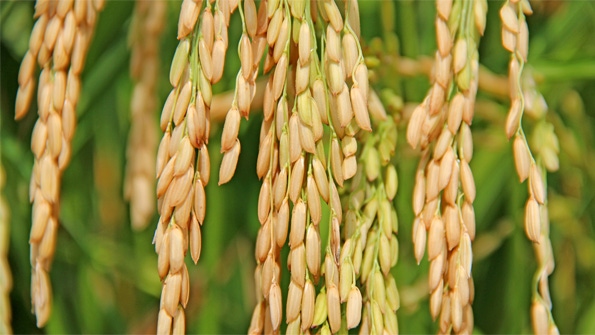August 19, 2013

The Asian market for U.S. rice is strong, but “we’ve been hit hard in Mexico and Central America, says Betsy Ward, president and CEO of the USA Rice Federation.
“The United States still dominates in the rough rice market in Mexico, but we’ve lost 50 percent of the market share in milled rice,” she said in a detailed view of rice markets and the outlook for the industry during the fifth annual RiceTec Field Day in Harrisburg, Ark., Aug. 1.
This year, Arkansas rice acreage will be under 1 million acres, down from a high of 1.8 million acres in 2009, and Ward focused her comments on how the international markets are currently affecting U.S. growers.
Mexico recently has turned to Vietnam to meet rice demand and banned imports from Pakistan due to the Khapra beetle found in shipments. The United States has a 680,000-ton milled-rice market in Mexico.
Check Rough Rice Futures Prices
Ward said USA Rice is actively working with Mexico on a new promotional campaign to identify U.S. rice for consumers, much like the Grown in the USA label created on packages for U.S. consumers.
“Mexicans tell us they respect food safety and prefer U.S. rice because of safety. We’re in the middle of developing a label so buyers can identify our rice on the shelf,” said Ward.
In South America, Uruguay has fairly high-priced rice, but Ward says the United States has a logistical advantage. “They have transportation issues getting the rice to market.”
Ward spoke briefly about the rice quality issues, indicating that Central America and their rice federation FECARROZ continue to work with the United States on solving the quality challenges.
“Identity preservation is still important. Their small mills can move rice faster, but we’re much larger,” said Ward.
Ben Noble, executive director of the Arkansas Rice Federation, agreed. “We have millions of acres of rice, and during harvest, it takes three to four weeks just to process it through the mills.”
Ward believes the 2013 crop will be high-quality and notes that some mills are segregating rice.
Turning to Southeast Asia, Ward noted the difficult U.S. trade position in countries dominated by strict government oversight which controls trade.
Ward expressed real concern over Vietnam’s current stockpiling of rice. “We’ve finished a preliminary study which will be done at the end of September that is looking at World Trade Organization (WTO) rules on limits. We think Vietnam has now exceeded those limits and could adversely affect the market if they dump the rice on the world market.”
In 2013, Vietnam has also moved into Haiti. “Haiti is a very strong market for U.S. milled rice and Vietnam is clearly displacing our market through government agreements with Haiti which provide huge discounts,” say Ward. USA Rice is also engaged in a promotion campaign in Haiti.
In Thailand, Ward says, the government has engaged in similar tactics. “They have a pretty amazing scheme that involves overpaying growers, stockpiling rice and then levying an export subsidy. Everybody is concerned.”
Ward said USA Rice continues to push for a level playing field on the global market to protect the interests of U.S. growers.
Ag news delivered daily to your inbox: Subscribe to Delta Farm Press Daily.
On a bright note, Ward said the U.S.-Colombia Free Trade Agreement (FTA) continues to advance. “We’ve shipped 79,000 metric tons and 82,000 metric tons of U.S. rice to Columbia since the agreement. The FTA has given $4 million to the Arkansas Rice Research and Promotion board as a result of the tariff revenue.”
On the domestic front, Ward reiterated her statement given earlier to the crowd at the RiceTec field day. “We’re excited about the farm bill. We think we got our positions in the bill, and when it passes, the bill will provide some stability to the rice industry.”
In 2013, USA Rice entered into a new partnership with Ducks Unlimited intended to further the relationship between the industry and conservation efforts. “We’re in the middle of another study that involves determining the value of wetlands in rice lands. Those results should be available in September.”
Finally, Ward reiterated the importance of unity within the U.S. rice industry. “I would like to see more unity. We have 90 percent of growers, mills, merchants and end-users on the same page, but we’d like to get that last 10 percent. It is so important to speak as a collective voice and this federation allows us to get into a room with the legislators whose decisions affect our lives.”
Also:
A powerful idea: Managing rice exports to Colombia to benefit producer…
New facility could boost Louisiana agriculture exports
You May Also Like




